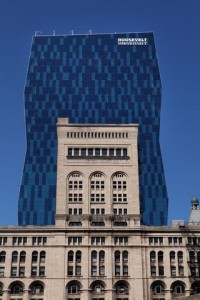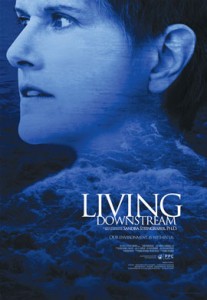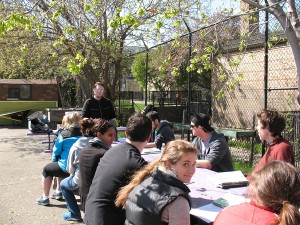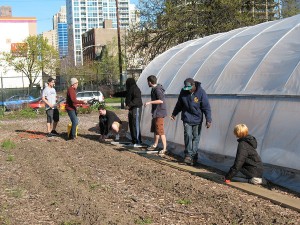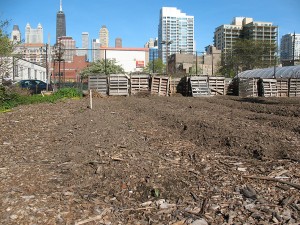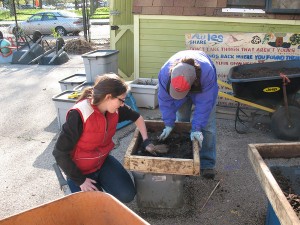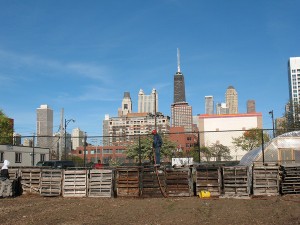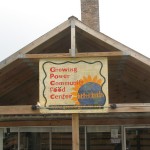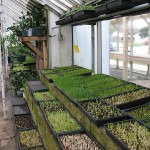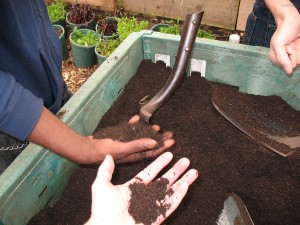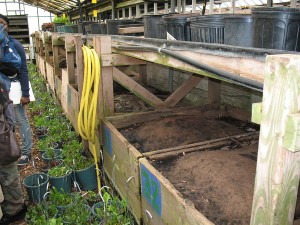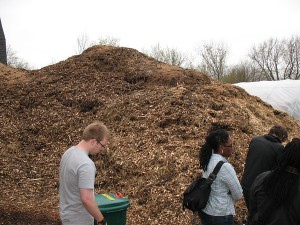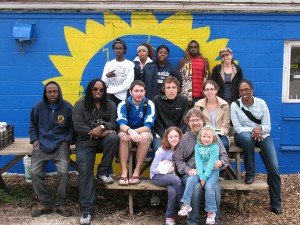Today US Representative (IL-D) Jesse Jackson, Jr. will visit eastern Will County with a contingent of supporters and symbolically turn over a few spadefuls of earth in a supposed “groundbreaking” ceremony for the long-contested South Suburban Airport. Airport critics, I’ve learned, plan a protest demonstration today near the site of Jackson’s ceremony. As reported yesterday by the Chicago Sun-Times,
[Jackson] will be joined by ministers who will bless the ground — but not by other elected officials, many of whom consider the symbolic groundbreaking premature. No airline officials will be there to say they think it’s a good idea.
Gov. Pat Quinn has endorsed the airport and his administration has been buying land and negotiating with the FAA to eventually get clearance, but Quinn will not be attending.
In the past week alone, Chicago Mayor Rahm Emanuel and United Airlines CEO Jeff Smisek both threw cold water on the idea that there is any market for a third airport 30 miles south of Chicago’s Far South Side.
Jackson fought for years against former U.S. Rep. Debbie Halvorson — both when she was in the state Senate and later when she was a member of Congress representing Peotone — on the topic of Peotone.
Jackson has named his own board to oversee the construction and administration of the airport, which he thinks will bring jobs to the south suburbs and as far north as the South Side.
But Will County officials say they should be the ones running any airport in their own backyard.
Halvorson sided with the Will County officials. U.S. Rep. Adam Kinzinger, who succeeded Halvorson, and Will County Board member Cory Singer scheduled a rival news conference Saturday, then switched that to a Monday conference call, to offer their take on the airport.
“If the airport is going to be in Peotone, Will County should absolutely have control over it,” Kinzinger spokeswoman Brooke Hougesen said. Kinzinger is expected to call attention to the recent controversies at the firm Jackson wants to oversee the building of the airport, Montreal-based SNC-Lavalin. The Canadian government raided the firm’s offices last week after its CEO resigned following reports that a consultant tried to smuggle Moammar Gadhafis’s son into Mexico.
Jackson’s persistent enthusiasm for the airport’s construction as a job-creation engine for the South Suburbs was recently buoyed by his re-election to Congress, but conflicts with longstanding political claims by Will County Executive Larry Walsh and other leaders that the county should control the airport, not Jackson’s hand-picked commission. It also flies in the face of grassroots protests by eastern Will County residents of the project as a wasteful, urban sprawl-inducing boondoggle that will destroy prime Illinois farmland, create congestion, and increase air and water pollution.
As if that weren’t enough, the champions of Peotone Airport — including Jackson, Governor Pat Quinn, and the Illinois Department of Transportation — have not produced compelling evidence of sufficient demand from major airline carriers for a third metro airport. This fact was underscored on Thursday, April 19th, at the City Club of Chicago, as reported by the Chicago Tribune:
United Continental Holdings Inc. CEO and Chairman Jeff Smisek says “there’s no demand” for a third airport in the Chicago area.
Smisek spoke Thursday to the civic organization City Club of Chicago. Smisek said any benefits from a proposed third Chicago-area airport near Peotone would damage O’Hare International Airport. Smisek also says it’s more important to modernize air traffic control systems at O’Hare rather than add runways.
It’s hard to imagine how the ill-fated Peotone Airport project, which I’ve written about extensively for the Joliet Herald-News since 2006, can take off given this powerful political opposition. Nevertheless, instead of devoting time and energy to truly beneficial public service activity to mark Earth Day — such as helping clear invasive species from our forest preserves, or taking a stand against continued threats to our air and water supplies — Jackson will be pointlessly turning over a few spadefuls of dirt today in a Will County farm field in a grandstanding attempt to bring attention to his airport fantasies.
Many of those same fields have been purchased by the State of Illinois in an airport land-acquisition plan over the last ten years that has netted 2,471 acres of prime Illinois farmland at the cost of $ 34,014,383 and change (of taxpayer funds) — all without FAA approval of the Peotone Airport project. And with the pool of willing sellers just about dried up, the State has resorted to eminent domain condemnation proceedings against local farmers and landowners in order to stake out the needed land footprint for the phantom airport’s first construction phase.
It’s truly hard to think of a more absurd and unjust example of Illinois’ political follies than this. And yet, the show goes on.
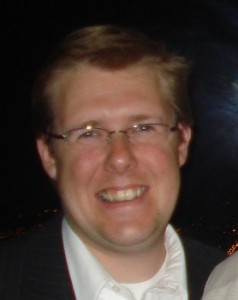 Senior SUST major Jeff Wasil, who works as an environmental engineer and who will graduate from RU this spring, was accepted to last summer’s Sustainability Institute at UIC. Jeff was part of an interdisciplinary research team of undergrad and grad students who designed and proposed an “intelligent sewer system” meant to reduce Chicago’s stormwater runoff. The team’s final presentation can be viewed here:
Senior SUST major Jeff Wasil, who works as an environmental engineer and who will graduate from RU this spring, was accepted to last summer’s Sustainability Institute at UIC. Jeff was part of an interdisciplinary research team of undergrad and grad students who designed and proposed an “intelligent sewer system” meant to reduce Chicago’s stormwater runoff. The team’s final presentation can be viewed here: